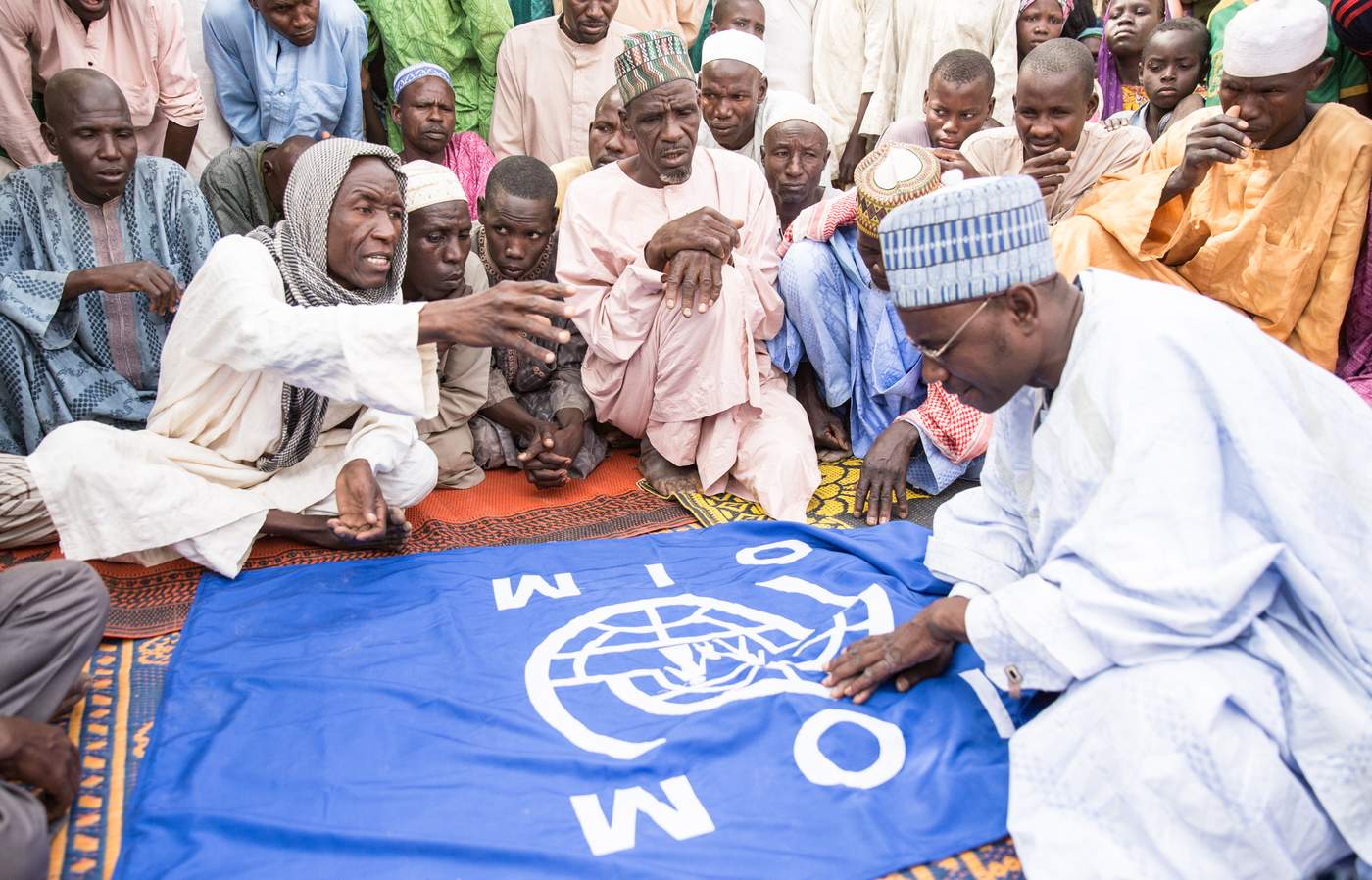"When your neighbor's beard is on fire, fetch water and soak your own," goes a Hausa proverb.
On the border with Nigeria, the town of Diffa, Niger – one of the world's poorest countries – has borne the brunt of Boko Haram’s insurgency. So much so, that in February 2015 Niger declared a 15-day state of emergency across the Diffa region following a spate of attacks by the group.
Nowadays, Diffa hosts refugees from Nigeria and internally displaced people (IDPs) mainly from Niger’s border areas fleeing violence and imminent attacks from Boko Haram. There are also many others fleeing climate change and environmental degradation.

N'Gourtoua, IDP's settlement
The region used to be a transit point for other migrants from West Africa trying to reach Libya and Algeria and Europe across the Mediterranean. However, this flow has diminished considerably due to the insecurity in the region.
In the Nigerien village of Boudoum, IDPs were housed at a local school. Later, with the help of the village chief they were able to find places to stay in the village.
"They have been here 7 months and 10 days", says an elderly villager. "We have a very good relationship, we have the same culture." he adds.
Nevertheless, the rapid increase in the number of people (almost three-fold) now living in the village has presented a heavy burden on the water supply and sanitation systems.
Still the old man says, "They are welcome here."

Diffa's regional government has taken several measures to protect the people in the region. These include militarization of the area, since September 2015 when the Général de Division Abdou Kaza became Governor of Diffa, and the prohibition of circulation of motorbikes in the region to avoid easy access for kamikazes (suicide bombers) and gunmen.

Seized motorbikes sitting at the parking lot of the police station
Another measure which has had drastic and far reaching effects was the banning of fishing, which while cutting off some of one of Boko Haram's income sources, has also deprived the population of an important economic activity as well as a source of food.
These measures have gone some way in weakening Boko Haram’s decentralized power structure and according to Governor Kaza, this partly explains why people are starting return to Diffa.
The lack of jobs, however, mean that people are more vulnerable to being recruited by Boko Haram. "They offer money and motorbikes to trick the youth to join the group. When they realize that joining Boko Haram is not what they expected, it is already too late," says the local chief of police, Mamane Youssoufou. He adds that the reintegration of people who have managed to abandon Boko Haram is not easy, since in many cases families and friends do not want them back.
N'gourtoua is one of those settlements along the highway and is home to more than 400 households of mostly IDPs who have fled Boko Haram. "We used to farm and fish. Here we can't grow food, perhaps we can start some small businesses," Chétima Lauvan, the chief of the N’gourtoua village explains.
IOM has assisted the population of N'gourtoua with
shelter and basic necessities.
Besides N’gourtoua, there are other villages that have been popped up. For example, the area where Djalori village is located was previously just a vast desert bordering the National Highway. Since the beginning of 2015, however, it has became a new 'home’ for more than 5,000 Nigerian refugees fleeing Boko Haram.

Focus group discussion in Djalori with IOM staff, the Chief of the Village Boulama Issa and the Mére Bagalé Madou
"We are facing livelihood difficulties with limited resources and very often lack access to clean water," the village chief Boulama Issa says.
See more photos from the region here.